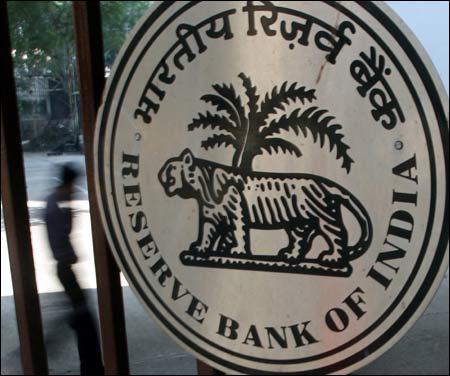 | « Back to article | Print this article |
Why teaser home loans trick borrowers
As a home loan borrower, it is very important to understand what a teaser loan is and what the implications in short- and long-term are.
What teaser loans have in store for a borrower
The Reserve Bank of India (RBI) recently raised concern over teaser home loans being offered to lure new home loan customers. In the current scenario of rate fluctuations and global financial crisis, the implication of such loans on borrowers as well as on banks has become a source of worry to the RBI.
So what are these loans and how can they affect you, the borrower? Read on to find out more.
Illustration: Uttam Ghosh
What is a teaser loan?
As the very name suggests, teaser loans have been designed to 'tease', or attract a home loan borrower seeking a new loan. These loans have a relatively low, fixed interest rate in the initial two years, say around 8 to 8.5 per cent. However, from the third year onwards, the rates revert to a higher fixed or floating interest rate, which will be subject to the then prevailing market rates.
The good and bad of teaser loans
Advantages:
- With low rates of interest initially, teaser loans make home loans affordable for new borrowers.
- They especially serve as an advantage if there is a likelihood of the rates moving up shortly.
Illustration: Uttam Ghosh
Issues
- One of the major concerns of the RBI is the EMI affordability once the rates are revised after the second year. With the shift in interest rates, the resultant EMI could end up being a burden to the borrower, especially if it is much more than was expected.
- With banks following aggressive practices to lure new customers, borrowers are seldom made to understand the difference in the initial years' EMI versus the EMI for the rest of the loan tenure. Many lenders do not provide appropriate illustrations of the interest regime after the initial discounted period.
- Many banks do not follow stringent and accurate evaluation of the borrowers' financial and repayment capacity. Such evaluation should ideally take into account the borrower's repaying capacity at normal lending rates, at the time of initial loan appraisal. If not done properly, the borrower could end up finding the remaining EMIs a burden.
Illustration: Uttam Ghosh
RBI's concern
Keeping in mind the previously-discussed points, the Reserve Bank of India has expressed a concern that borrowers may default on their EMI payments if the floating rates shoot up. Such EMI defaults are not a good sign for the borrower or for the asset books of the lending bank.
Therefore, the RBI has recently increased the teaser loan standard asset provisioning to 2 per cent from 0.4 per cent, and has capped the home loan limit at 80 per cent of the value of a property.
Tips to keep in mind when opting for a teaser loan
- Ask your bank to give you the average loan rate. Though this average loan rate is based on the current base rate of the bank, it could serve as an indicative rate to understand the lender' reference rates, and for you to do a comparative study between other lenders.
- From July 1, 2010, all loans have been priced under the new base rate system of the bank, instead of the earlier prime lending rate. This system is transparent and has no arbitrariness to borrowers. Understand your lender's base rate system, as the interest rate after 2 years will be benchmarked according to this.
- Work out your EMI affordability by analysing your finances before loan disbursement. EMIs are subject to prevailing market conditions after the initial years. So ensure you are able to factor in times when the rates shoot up. Check for personal factors such as a salary rise or promotion.
- Ask your lender about prepayment clauses. Check for the flexibility and penal interests for prepayment and balance transfers.
The main issue arising in taking a teaser loan versus a regular home loan is that no clarity is available to borrowers on the subsequent interest rates after the initial fixed rate years. It is only after the initial tenure that borrowers get the actual lender's reference rates and an understanding of the effective cost of the loan. With RBI's stringent move, we can probably hope for more transparency and prudence from lenders offering such loans.
Illustration: Uttam Ghosh





